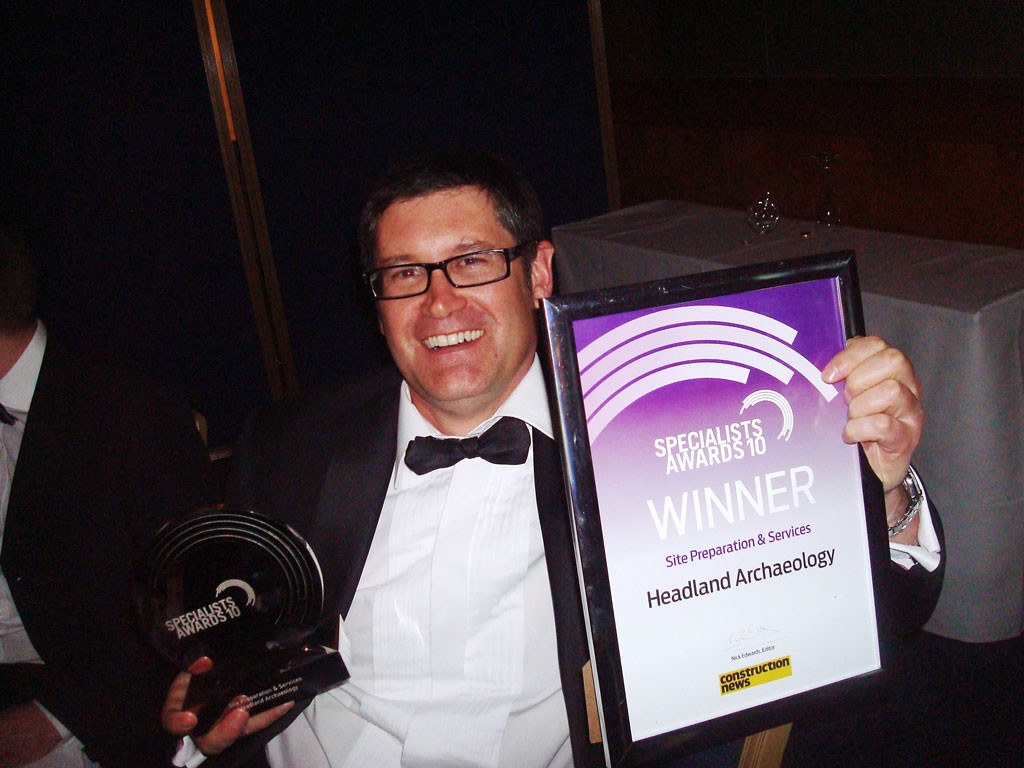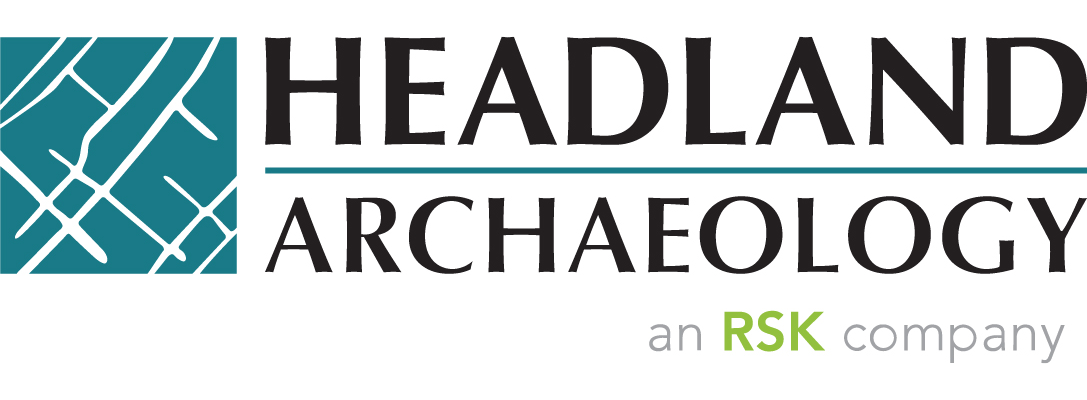Over the years we have won awards in both the construction and heritage sectors, recognising our commitment to our clients and our ability as one of the UK’s leading archaeological contractors.

Awards

Construction News ‘Site Preparations and Services’ Award
Headland was the winner at the Construction News Specialists Awards 2010 in the ‘Site Preparations & Services’ category. The award was for our work on the Edinburgh Trams Project which involved monitoring several miles of utility diversions as well as a full excavation of over 300 skeletons beneath Constitution Street in Leith. Headland’s Commercial Director, Russel Coleman, received the award at a ceremony supported by the NSCC held at the Hilton Hotel on London’s Park Lane in March 2010. The Specialists Awards celebrate the finest contractors and construction projects. Attended by over 600 leaders in specialist contracting in the construction industry, these awards brought together the key players in the industry.
It was a great honour to be recognised in these prestigious awards and the company felt it was wonderful recognition of the hard work and enterprise we have been diligently carrying out. The award also marks us out from the competition and has helped to change the general perception of archaeology in the media and to convey our importance and value to the construction industry – our most important client.
Best Fieldwork & Recording Award – Association for Industrial Archaeology
Headland, along with PCA in their joint venture HAPCA, were awarded the ‘Fieldwork and Recording’ award by the Association for Industrial Archaeology for our work on the M74 Completion Project. These awards aim to recognise good archaeological recording practice in industrial archaeology and it was HAPCA’s innovative approach to recording industrial remains on a vast scale which caught the judge’s eye.
British Archaeological Awards
Headland’s work on the publication of Inchmarnock was highly commended at the 2010 British Archaeology Awards in the category of ‘Best Archaeological Project’. The purpose of the awards are to advance public education in the study and practice of archaeology and to recognise significant contributions to knowledge.
The excavation programme at Inchmarnock involved five seasons of fieldwork at the chapel site, along with targeted excavation at several other sites across the island, including a late prehistoric rock shelter, a medieval kiln site and a post-medieval dwelling. A monograph publication was produced in 2008 by the Society of Antiquaries of Scotland. The project director Dr Chris Lowe attended the award ceremony at the British Museum.


